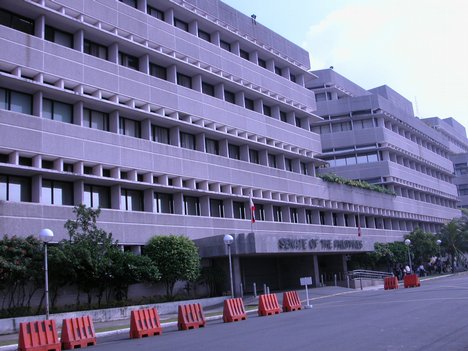
MANILA, Philippines — The Senate on Monday has passed a bill seeking to launch a national feeding program for students in public schools and children in daycare centers to combat hunger and malnutrition in the country.
Voting 18-0, the Senate Bill No. 1279 otherwise known as the Masustansyang Pagkain Para sa Batang Pilipino Act was approved.
Senator Bam Aquino, the principal sponsor of the measure, said the bill wants to institutionalize an effective feeding program with the involvement of the national government, local government units (LGU), and the community.
“Through this policy, school children in the kindergarten and elementary levels will enjoy free access to nutritious food, sourced from our local farmers, with the Department of Education (DepEd) ensuring that students from kindergarten to Grade 6 are provided with proper meals,” Aquino said.
Aquino noted that around 16 million Filipino children were considered undernourished according to the State of Food Insecurity in the World 2012 study conducted by the Food and Agriculture Organization (FAO).
The senator also said that the current school-based feeding program of the government implemented by DepEd only caters around 500,000 severely-wasted students or about P4.8 billion in 2016.
“The government spent only 0.52 percent of its annual national budget on nutrition. The global average is 2.1 percent. We need to allocate more to be at par with international standards,” he added.
Wasting or acute malnutrition is when a child’s weight is below the recommended mass for his age and height. It is often used to assess the severity of an emergency because it is caused by illness or severe lack of food and is strongly related to mortality.
For his part, Senator Juan Miguel Zubiri, co-sponsor of the bill, cited data from the Food and Nutrition Research Institute (FNRI) showing no improvement in the national date of wasted children from 7.9 percent in 2013 to 7.1 percent in 2015 in spite of the government forces to eradicate hunger.
Zubiri added that the same data revealed that overall chronic malnutrition among children under five years old significantly increased to 33.5 percent from 30.5 percent in 2013.
Senator Grace Poe said the legislation acts as a safety net for students suffering from malnutrition.
“It is definitely one of the safety nets for the poor at a time when prices of basic goods and food are increasing. It is a measure to save the pain inflicted by the burdensome demands that we have now,” said Poe, who is also a co-sponsor of the bill.
Meanwhile, Aquino said the passage of the bill into law would establish a National School-Feeding Program that is properly funded, and “not subject to the whims of whoever is in Malacañang.”
He said an initial appropriation would be sourced from the initial budget allocation of DepEd and the Department of Social Welfare and Development (DSWD).
The bill was also co-authored by Senators Gregorio Honasan II, Loren Legarda, Cynthia Villar, Joel Villanueva, Sherwin Gatchalian, Senate President Pro-Tempore Ralph Recto, Senate Majority Vicente “Tito” Sotto III, and Senate Minority Leader Franklin Drilon.
The measure will now be sent to a bicameral conference committee to discuss the disagreeing provisions of the Senate and House versions.